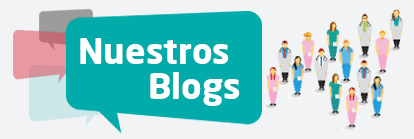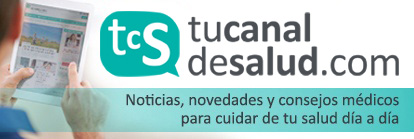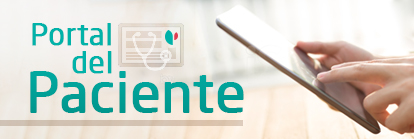Endocrinology and Nutrition
Fundación Jiménez Díaz's Endocrinology and Nutrition Service has grown significantly over recent years thanks to the incorporation of staff, allowing new specialist consultations to be set up, greatly enhancing the care provided to patients. It has also received the Best in Class award for three consecutive years: two for diabetes and one for nutrition.
The large number of consultations available in both the hospital and in the speciality centres means residents have the opportunity to rotate with all the consultants, both general and specialist, throughout their four years, thereby enhancing their training.
The service's speciality consultations include Continuous Subcutaneous Insulin Infusion (CSII) and continuous monitoring of glycaemia, gestational diabetes, pituitary pathology, nodular thyroid pathology, malnutrition, gender dysphoria, surgical obesity and complex obesity (non-surgical). All consultations use the latest equipment and perform activities such as fitting perfusion pumps and continuous insulin measurement sensors, performing thyroid ultrasound scans and impedance testing on a daily basis.
The service has a resident tutor who spends two hours per month with each resident under his/her charge. Individualised, scheduled, structured, documented meetings between the tutor and the resident are held on a monthly basis. These always include reviewing the resident's book, monitoring compliance with teaching goals and the progress and degree of autonomy achieved, reviewing the sessions that the resident has completed or are still outstanding, monitoring research projects and motivation to carry them out, and organising external rotations, congresses, multidisciplinary and discipline-specific courses or workshops of interest to residents. Progress in the current rotation is always discussed in order to identify any problems, points for improvement, etc. Resident evaluations are carried out by the attending physician (teaching collaborator) on the Forsan teaching platform at the end of each rotation, following the evaluation criteria laid down by the Ministry of Health, which take into account aspects such as:
- Knowledge and skills: level of theoretical knowledge acquired, skills, ability in diagnosing, capacity to make decisions and rational use of resources.
- Attitudes: Motivation, dedication, initiative, punctuality/attendance, responsibility, patient/family relationship, and relationship with the work team.
Apart from these evaluations, an objective assessment is carried out every year, including a written exam with multiple-choice questions and a skills assessment, taking into account participation in the resident and general service sessions, along with other factors such as:
- Professional values, attitudes, behaviours and ethics in relationships with colleagues, patients and family members.
- Communication values with both co-workers and patients.
- Transferable skills in terms of presentations, papers, language, etc.
Teaching activity:
The Endocrinology and Nutrition Service is highly involved in undergraduate teaching and teaching for residents in the speciality, as well as in continuing education in all areas of the Service.
Service and interdepartmental sessions
A weekly 2-hour session of the entire service is held in the endocrinology outpatient clinic with all attending physicians and residents from other specialities rotating in the endocrinology service at the time. The following are carried out in the sessions:
- BIBLIOGRAPHIC SESSIONS: Commentary and discussion by a member of the service on two or more recently published articles from scientific journals of relevance to the speciality.
- SINGLE-TOPIC SESSIONS: Presentation by a member of the service or invited guest on a topic related to the speciality .
- CLINICAL SESSIONS: Presentation by a member of the service of a clinical case of interest and joint discussion with the service.
- JOINT SESSIONS with endocrine surgery, radiology, pathological anatomy and other specialities related to the cases of interest: Presentation of medical-surgical cases and protocols. This session takes place in the meeting room on the last Friday of each month, starting at 8 a.m.
The resident's session takes place every 15 days in Isaac Peral outpatient clinic. These sessions are taught by residents and cover:
- PROGRAMME SESSIONS in which the resident presents a topic, allowing the speciality programme to be reviewed throughout the year.
- CLOSED CLINICAL CASE SESSIONS in which an attending physician briefly presents a clinical case, and the resident is required to take a detailed medical history and propose diagnostic tests to reach the most probable diagnosis.
Teaching relations, agreements…
- With Medical Schools:
- School of Medicine. Universidad Autónoma de Madrid (UAM). Year-5 students.
- School of Medicine at Universidad Rey Juan Carlos.
- School of Medicine at Universidad Francisco de Vitoria.
- School of Health Sciences at Universidad de Alcalá de Henares.
- Internship agreements with other universities. We receive trainees from:
- Cafyde (School of Physical Activity and Sport Sciences at Universidad de Alcalá de Henares).
- Degree in Nutrition at Universidad Católica de Murcia.
- Degree in Nutrition at UAM.
- Degree in Nutrition at Universidad CEU San Pablo.
- Degree in Nutrition at Universidad Alfonso X El Sabio.
- Degree in Nutrition at Universidad Isabel I de Castilla.
- Teaching at Jiménez Díaz Foundation Nursing School. UAM.
Hospital Universitario Fundación Jiménez Díaz
Avda. Reyes Católicos, 2
28040 Madrid Madrid
© 2026 Quirónsalud - All rights reserved























